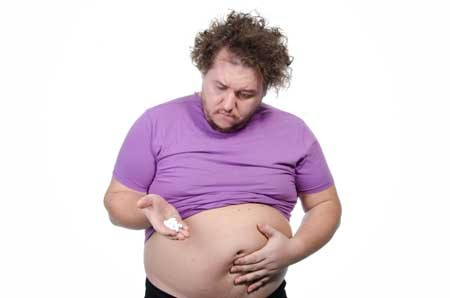Only Fluoxetine is More Effective Than Placebo for Children and Adolescents with Depression
 In a meta-analysis published in 2016, researchers Andrea Cipriani, Xinyu Zhou, and colleagues reported that many antidepressants are not effective in children and adolescents. Fluoxetine alone was more effective than placebo. Other antidepressants also caused high study drop-out rates compared to placebo.
In a meta-analysis published in 2016, researchers Andrea Cipriani, Xinyu Zhou, and colleagues reported that many antidepressants are not effective in children and adolescents. Fluoxetine alone was more effective than placebo. Other antidepressants also caused high study drop-out rates compared to placebo.
In an article published in the journal The Lancet, Cipriani, Zhou, and colleagues analyzed 34 randomized, controlled clinical trials of antidepressants in children and adolescents. These trials included a total of 5,260 participants and 14 different antidepressants.
The researchers determined that much of the evidence was of a low quality. Only fluoxetine was statistically significantly more effective than placebo. Fluoxetine was also more tolerable to patients than duloxetine or imipramine. Patients who received imipramine, venlafaxine, or duloxetine were more likely to drop out of studies due to adverse events compared to patients who received placebo.
The authors suggest that prescribing antidepressants to children or adolescents may not necessarily be beneficial, and that fluoxetine is probably the best option to consider.
Editor’s Note: It may be best to use caution when prescribing antidepressants to children or adolescents. First, these data that suggest that many antidepressants are ineffective in young people. In addition, depression in children and adolescents may be a sign of bipolar disorder, and antidepressant use may cause activation or switching into mania in vulnerable patients.
While there is a warning about using antidepressants in young people because of the risk of increased suicidal ideation, the actual suicide rate in young populations decreases when these patients take antidepressants and cognitive behavioral therapy. Psychotherapy should be a high priority. Other safe adjunctive approaches might include omega-3 fatty acids, N-acetylcysteine, vitamin D3, and folic acid. Evidence for the efficacy of rTMS in young people is also positive and growing.
Weight Gain is a Common Issue with Antidepressants, But Buproprion is an Exception
A 2016 study by researcher David Arterburn and colleagues in the Journal of Clinical Medicine suggests that taking an antidepressant for two years is associated with an increase in body weight. Luckily, bupropion (trade name Wellbutrin) is an exception that may be a good choice for obese or overweight patients.
The researchers analyzed links between which antidepressants patients in a large health system in Washington State were prescribed and their body weight two years later.
The researchers used fluoxetine (Prozac) as a reference. Most antidepressants did not differ significantly from fluoxetine in terms of the weight gain experienced by people taking the drug.
There were a few exceptions. Compared to non-smoking fluoxetine users, who gained an average of 4.6 pounds in two years, non-smoking bupropion users actually lost weight—an average of 2.4 pounds. (Smokers taking bupropion still gained an average of 6.9 pounds.)
Sertraline (Zoloft) was another exception. Sertraline users gained more than users of other antidepressants—an average of 10.5 pounds over two years.
Light Therapy Effectively Treats Non-Seasonal Depression
Doctors have known for some time that treatment with high-intensity light (7,000–10,000 Lux) can improve seasonal depression. In an 8-week study published in the journal JAMA Psychiatry in 2015, researcher Raymond Lam compared four different treatment options for non-seasonal major unipolar depression: bright light therapy for 30 minutes per day first thing in the morning, 20 mg of the antidepressant fluoxetine per day, combined bright light therapy and fluoxetine, and a placebo device paired with a placebo pill.
The combination of bright light therapy and fluoxetine produced remission in 58.6% of the participants who received it, compared to remission rates of 43.8% for bright light alone, 19.4% for fluoxetine alone, and 30% for placebo. It is notable that the effects of fluoxetine did not exceed those of placebo, but the effects of light alone did. There were few side effects in any group.
These data provide convincing evidence of the efficacy of light therapy in the treatment of non-seasonal unipolar depression. Use of light therapy for non-seasonal depression should now be more routinely considered, particularly when combined with antidepressant treatment.
Patients who had previously failed to respond to two or more antidepressants and patients with bipolar depression were excluded from the study. Bright light therapy administered in the morning can sometimes bring about mixed states in people with bipolar disorder. A 2007 case study by D. Sit and colleagues in the journal Bipolar Disorders found that midday light led to more improvement and less risk of mixed states than morning light among women with bipolar disorder.
Most SSRIs Free of Birth Defect Risk Early in Pregnancy, Fluoxetine and Paroxetine are Exceptions
A large study of women who took selective serotonin reuptake inhibitor (SSRI) antidepressants in the month before pregnancy and throughout the first trimester suggests that there is a smaller risk of birth defects associated with SSRI use than previously thought, though some risks were elevated in women who took paroxetine or fluoxetine.
The 2015 study, by Jennita Reefhuis and colleagues in the journal BMJ, investigated the drugs citalopram, escitalopram, fluoxetine, paroxetine, and sertraline, and examined birth defects that had previously been associated with SSRI use in smaller studies. The participants were 17,952 mothers of infants with birth defects and 9,857 mothers of infants without birth defects who had delivered between 1997 and 2009.
Sertraline was the most commonly used SSRI among the women in the study. None of the birth defects included in the study were associated with sertraline use early in pregnancy. The study found that some birth defects were 2 to 3.5 times more likely to occur in women who had taken fluoxetine or paroxetine early in their pregnancies.
Five different birth defects, while uncommon, were statistically linked to paroxetine use: anencephaly (undersized brain), heart problems including atrial septal defects and right ventricular outflow tract obstruction defects, and defects in the abdominal wall including gastroschisis and omphalocele. Two types of birth defects were associated with fluoxetine use: right ventricular outflow tract obstruction defects and craniosynostosis (premature fusion of the skull bones). Absolute incidence of these defects was also low.
Antidepressants and Ketamine Induce Resilience in Animals Susceptible to Depression-Like Behavior
 To study depression in humans, researchers look to rodents to learn more about behavior. Rodents who are repeatedly defeated by more aggressive animals often begin to exhibit behavior that resembles depression. At the 2014 meeting of the International College of Neuropsychopharmacology (CINP), researcher Andre Der-Avakian reported that in a recent study, repeated experiences of social defeat led to depressive behavior in a subgroup of animals (which he calls susceptible), but not in others (which he calls resilient). Among many biological differences, the resilient animals showed increases in neurogenesis in the dentate gyrus of the hippocampus.
To study depression in humans, researchers look to rodents to learn more about behavior. Rodents who are repeatedly defeated by more aggressive animals often begin to exhibit behavior that resembles depression. At the 2014 meeting of the International College of Neuropsychopharmacology (CINP), researcher Andre Der-Avakian reported that in a recent study, repeated experiences of social defeat led to depressive behavior in a subgroup of animals (which he calls susceptible), but not in others (which he calls resilient). Among many biological differences, the resilient animals showed increases in neurogenesis in the dentate gyrus of the hippocampus.
Chronic treatment of the susceptible animals with the selective serotonin reuptake inhibitor (SSRI) antidepressant fluoxetine or the tricyclic antidepressant desipramine, which both increase neurogenesis, also reversed the depressive behavior in about half of the animals. A single injection of the anesthetic ketamine (which has rapid-acting antidepressant effects in humans) reversed social avoidance behavior in about 25% of the animals. One depression-like symptom was anhedonia (loss of pleasure from previously enjoyed activities), which researchers measured by observing to what extent the animals engaged in intracranial self-stimulation, pressing a bar to stimulate the brain pleasurably. The effectiveness of the drugs in inducing resilient behavior was related to the degree of anhedonia seen in the animals. The drugs worked less well in the more anhedonic animals (those who gave up the intracranial stimulation more easily, indicating that they experienced less reward from it.)
Continuation Cognitive Behavioral Therapy Prevents Relapse in Kids
At a symposium on early-onset depression at the 2013 meeting of the American Academy of Child and Adolescent Psychiatry, Graham Emslie of the University of Texas Southwestern Medical Center discussed the role of cognitive behavioral therapy in the long-term treatment of child-and adolescent-onset unipolar depression.
In Emslie’s research, the combination of the antidepressant fluoxetine and cognitive behavioral therapy reduced depressive relapses in children. Using the two treatments together did not speed onset of antidepressant response compared to fluoxetine alone, but once children responded to the medication, the addition of cognitive behavioral therapy reduced relapses over the next year compared to fluoxetine alone (even though the cognitive behavioral therapy ended after the first six months).
Emslie likened the use of cognitive behavioral therapy to the course of rehabilitation that often follows a major surgery and is meant to sustain or enhance the good effects of surgery. Getting patients to full remission (well and with no residual symptoms) was the key to staying well.
Despite the FDA Warning to the Contrary: Antidepressants Do Not Increase Suicidality
In 2007, the FDA began labeling antidepressants with a warning that patients aged 18-24 were at risk for increased suicidality during the first weeks of treatment. New evidence shows antidepressants actually have beneficial effects on suicide risk in adults. A study of all published and unpublished data on the SSRI fluoxetine (Prozac) and the SNRI venlafaxine (Effexor) published in 2012 by Gibbons et al. in the Archives of General Psychiatry showed that these antidepressants substantially reduced suicidal thoughts and behavior in adults and produced no increase in suicidal thoughts or behavior in children and adolescents.
The protective effect on suicidality in adults was mediated by mood, i.e. the patients’ mood improved and they became less suicidal. Children’s mood also improved on the antidepressants, but their risk of suicidal ideation did not change.
Editor’s Note: These are important findings. When the FDA box warning on antidepressants and suicidal ideation appeared, antidepressant treatment of youth decreased without an accompanying increase in psychotherapy, and the actual suicide rate in youth increased.
We now know that childhood-onset depression carries a bigger risk for a poor outcome in adulthood than adult-onset illness. In parallel, greater numbers of depressions are associated with more impairment, disability, cognitive dysfunction, medical comorbidities, treatment resistances, and neurobiological abnormalities.
It is important to treat illness in young people in order to prevent these difficulties, and the suicide warning should not deter the use of antidepressants. Patients should be careful about suicidal ideation in the first several months after starting an antidepressant, as other data suggest that this is a time of slightly increased risk of suicidal thoughts in children and adolescents.
Vitamin D3 has Positive Effects in Depressed Patients on Prozac
A recent study of patients taking fluoxetine (Prozac) for major depression found that adding 1500 IU of vitamin D3 to their treatment regimen improved their response significantly. The article was published in the Australian and New Zealand Journal of Psychiatry.
According to the Mayo Clinic:
The term “vitamin D” refers to several different forms of this vitamin. Two forms are important in humans: ergocalciferol (vitamin D2) and cholecalciferol (vitamin D3). Vitamin D2 is synthesized by plants. Vitamin D3 is synthesized by humans in the skin when it is exposed to ultraviolet B (UVB) rays from sunlight. Foods may be fortified with vitamin D2 or D3.
Editors Note: Here is another augmenting agent that could be considered for the treatment of those with residual depression. While vitamin D has not been studied directly in bipolar depression, we could ask, “Why not try it?” Other nutritional supplements in this category might be folate and N-acetylcysteine.
Vitamin D supplements are definitely indicated for the large percentage of those in the US who are vitamin D deficient. Given the data from this randomized trial, vitamin D3 could be considered in those with normal levels of vitamin D as well.
Antidepressants Work Better in Major Depressive Disorder than Previously Thought
As we’ve written before, the popular media has sometimes questioned the efficacy of antidepressants for unipolar depression. A reanalysis of data from previous controlled trials of fluoxetine and venlafaxine that was recently published in the Archives of General Psychiatry provides new evidence that these drugs are significantly more efficacious than placebo in youth, adult, and geriatric populations with major depressive disorder.
The researchers concluded,
To our knowledge, this is the first research synthesis in this area to use complete longitudinal person-level data from a large set of published and unpublished studies. The results do not support previous findings that antidepressants show little benefit except for severe depression. The antidepressants fluoxetine and venlafaxine are efficacious for major depressive disorder in all age groups, although more so in youths and adults compared with geriatric patients. Baseline severity was not significantly related to degree of treatment advantage over placebo.








